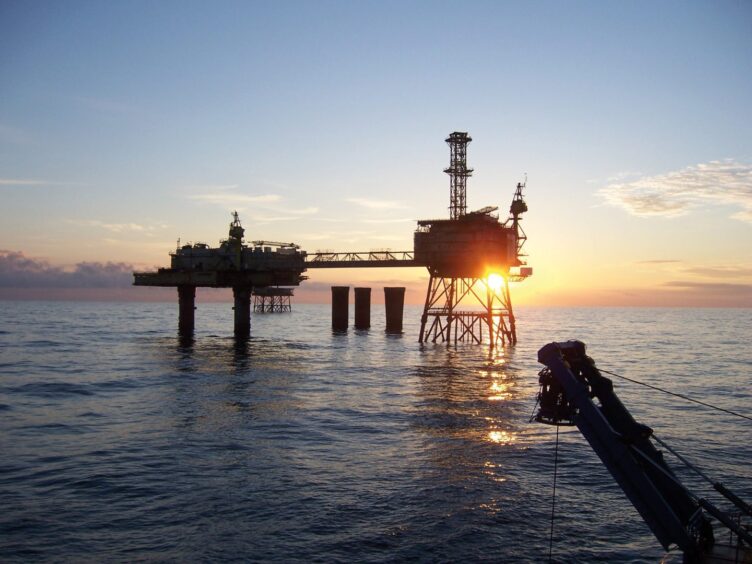
A murky picture has been laid out for North Sea M&A deals in the months ahead, as a general election, lack of private capital and the near-extinction of IPOs have muddied the waters.
“Although the picture is not rosy, we expect to see M&A activity from existing North Sea players, with new players less likely to enter at this time,” said Vinson and Elkins Partner Nadine Amr.
That was borne out last week by Ithaca unveiling an exclusivity agreement to combine with Italian oil major Eni’s UK business.
Like others, Ithaca has been hit by the windfall tax but, unlike peers like Harbour Energy, it has decided to hone in on the UK.
Chairman Gilad Myerson said much of the synergies on offer come from the UK, which makes the deal attractive and has the chance to deliver “huge value” through the deal.
He said: “When you consolidate, there are significant synergies to be achieved – operating synergies, cash flow synergies, access to cheaper debt – and therefore we believe the industry will continue to consolidate. In fact the initial thesis of Ithaca many years back was to focus on consolidating the industry in the UK basin.
“And therefore, regardless of the government and fiscal environment, we believe it is healthy and the right thing for businesses to continue to consolidate.”
Nonetheless, he said the “fiscal instability” in the UK does mean Ithaca is also looking outside the UK.
Policy shifts in the run up to an expected general election this year threaten the fifth tax change to the UK North Sea sector since 2022 – that’s an issue which may hit deals going forward, said Ms Amr of V&E.
Speaking prior to the Ithaca announcement, she said: “This reticence by new players is down to factors including the UK’s complex (and often unpredictable) fiscal landscape and uncertainty in the run-up to the general election, with Labour’s plans for the UKCS and policy towards hydrocarbons less than clear.
“Buyers that have the means to diversify their portfolios geographically are more likely to be able to withstand some of the turbulence, while single asset or UKCS-focused independents will be more vulnerable to fiscal and political uncertainty.”
Deals to watch in the months ahead have been mooted TotalEnergies shifting position in the West of Shetland, Shell in the Southern North Sea and Harbour Energy’s takeover of Winterhsall DEA.
Ms Amr said: “We expect that we will see a continuation of the existing trend of some of the Majors and larger players seeking to divest non-core assets, but momentum for new deals could be slow, at least until there is greater visibility following the election results.
“The pool of potential buyers who fit the bill (i.e. have adequate financial resources, suitable credit and technical capability to acquire, operate and oversee the decommissioning of complex North Sea assets) is likely to be relatively small, particularly as the relatively high interest rate environment and traditional lenders’ stronger focus on ESG makes bank financing more difficult to come by.”
“It is possible that private capital will step in to fill some of the vacuum and private capital / private equity investors with an oil and gas focus will try to benefit from the capital needs of cash-constrained independent players (although even that pool of private capital is likely to be small).
“Another possibility could be a tie-up between independents and oilfield services companies who can contribute their technical expertise and deep understanding of the Basin and lend credibility to a bid.”
Decommissioning and North Sea M&A
Huge liabilities on decommissioning costs will also play a role in future M&A transactions, with sellers increasingly prepared to agree a portion of these costs, according to V&E.
Under the UK system, should any buyers default on those liabilities then the burden would fall back to the seller in order to protect UK taxpayers.
“Sellers that would remain saddled with decommissioning liability under the statutory framework in any event are increasingly seeing the benefit in agreeing the terms of a retention as a deal sweetener,” said Ms Amr.
IPOs
There could also be a general lack of private equity investment, given a lack of options on exit routes.
The owners of Neptune Energy made an exit earlier this year as Italian oil giant Eni acquired the firm.
Neptune was, at one stage, mooted for an initial public offering (IPO), however that’s becoming more and more rare in the market – with Ithaca Energy’s listing in 2022 being one of the most notable.
Alex Msimang, partner at V&E, said: “Another negative for the UKCS is that London market IPOs have almost become extinct in recent months.
“So for the UK North Sea, when you add in the fact that public appetite for oil and gas investments has virtually disappeared for ESG reasons, the prospect of a PE investor getting an exit from a UK North Sea investment by way of IPO seems remote, which can only (further) dampen the attraction for PE houses.”
Recommended for you


 © Vinson and Elkins
© Vinson and Elkins © Supplied by -
© Supplied by -